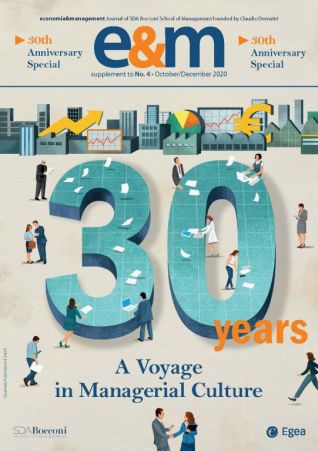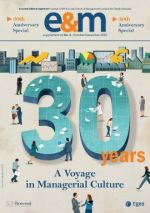E&M
2020/5
Being Interesting, Rigorously
Vincenzo Perrone was the editor-in-chief of Economia&Management from 2004 to 2013. In this interview he retraces some of the fundamental points of his term, and his dream to make this magazine a tool to support the country's economic development.


